NOT OUR GAS. MAD COWS PROTEST AT THE UN INTERNATIONAL MARITIME ORGANISATION
18.03.2024
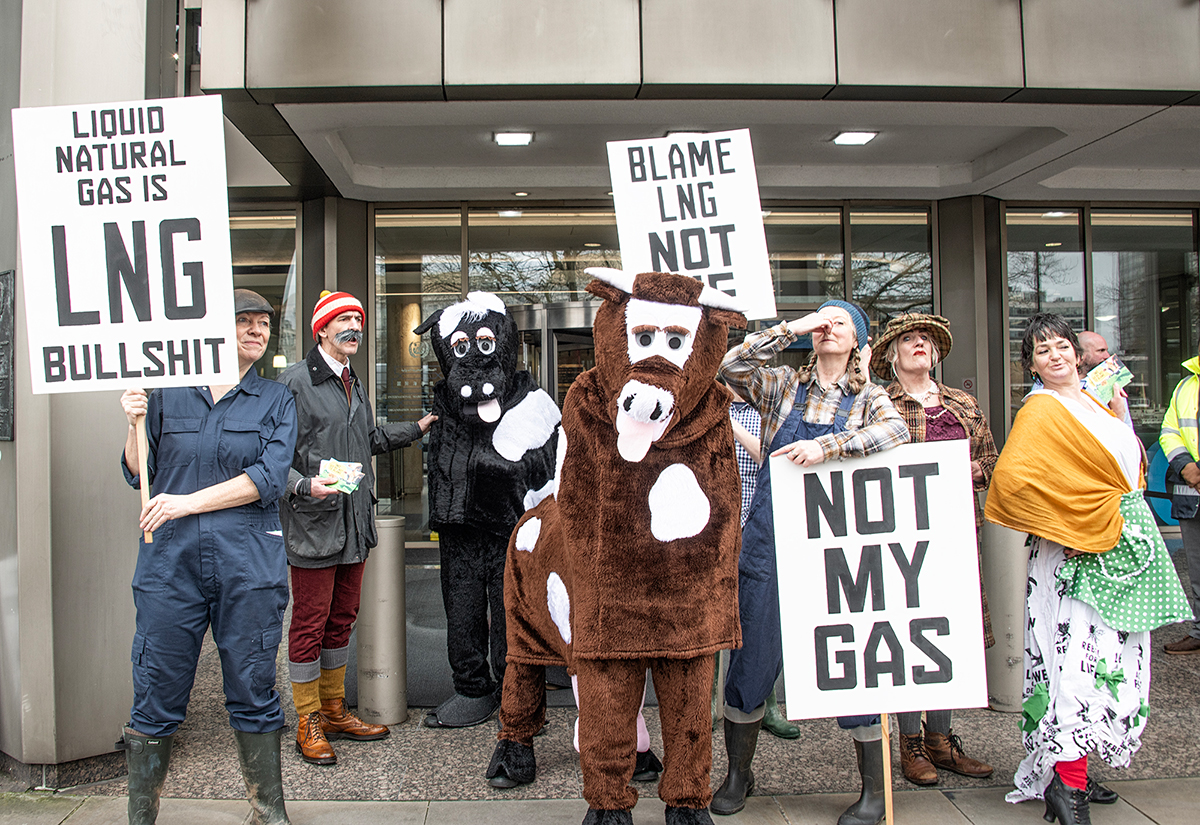
On the first day of the UN International Maritime Organisation (IMO) MEPC81 (81st Marine Environmental Protection Committee) pantomime, IMO delegates and Member States were met with pantomime cows from the fields of the renowned breeders Lord and Lady Can’hardly.
The cows stampeded outside the IMO in protest of the fake accusation that they are only cause of increasing methane emissions. They were mooooved to take action after experiencing liquified natural gaslighting online from angry environmentalists. The mooooove to Liquid Natural Gas (LNG) by the shipping industry is a driving up methane emissions across the globe and the IMO is helping it happen – blaming the cows is totally unfair.
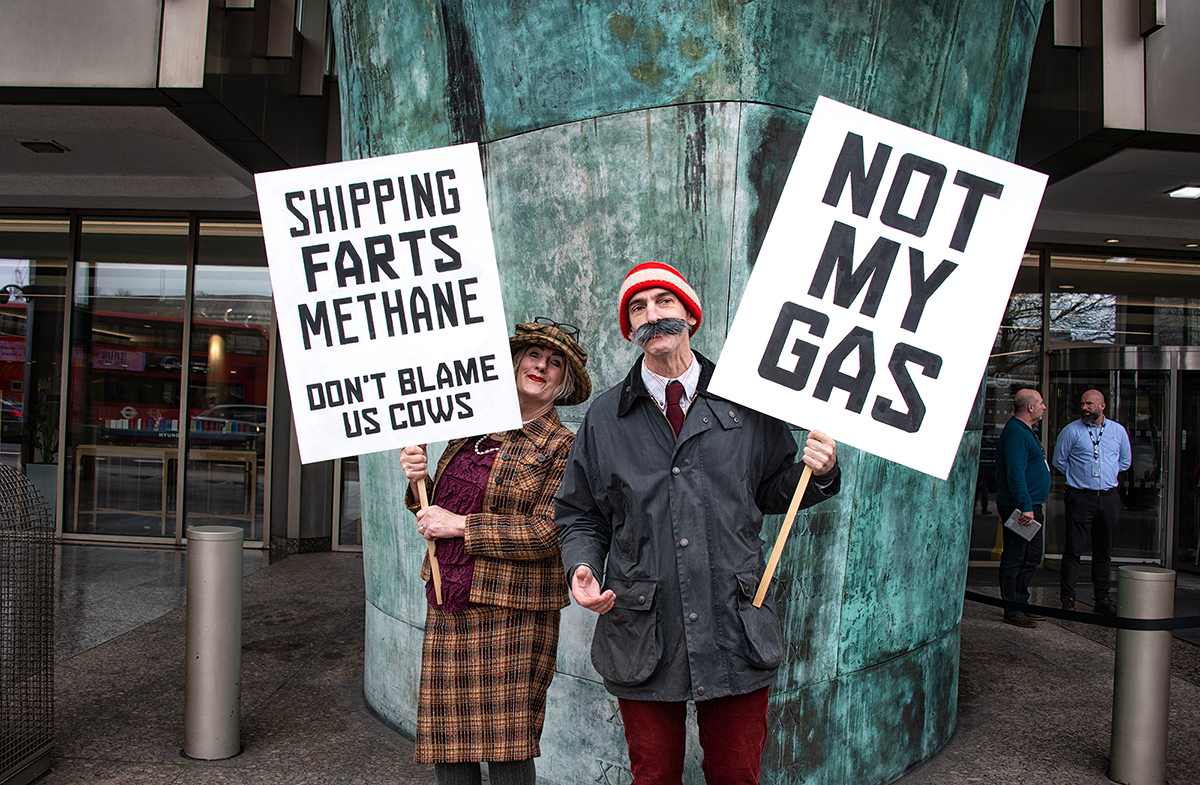
⬆️ Lady and Lord Can’hardly outside the IMO. Both were suffering from bad gas on the day. ‘It’s behind you!’ Photo Guy Reece.
Lord and Lady Can’hardly and farm workers joined the cows, they are equally upset by the smelly methane rumours. The Right ‘Onerable Lord gave a short speech to the UN delegates. He explained why increasing the use of Liquified Natural Gas (LNG) in shipping is madness, not only will it result in more short term emissions than CO2 but it will also lead to more anger directed towards his Lordship and his herd. “This cannot go on,” he exclaimed, “either you stop using the fossil fuel LNG now or I will spray your dirty building with cow muck.” “It’s what they deserve darling,” added Lady Can’hardly, “after all it’s the IMO who’ve been listening to the lies of fossil fuel lobbyists, and allowing them to bury the facts about methane emissions beneath LNG lies. IMO, it’s time to put fossil fuels behind you!”
The fate of the Ocean depends on us all.
Our interventions depend on your support.
The cows were moooved to applaud the speech but the sad fact remains, the IMO is doing nothing to stop LNG becoming the fossil fuel of choice for shipping. In the European Union alone, consumption of LNG by ships has doubled from 2.2 million tonnes (Mt) in 2018 to 4.4 Mt in 2022. LNG uptake is based on the deceptive notion that it is an alternative, clean fuel. This is where LNG proponents are engaging in gaslighting, deceiving the maritime sector and all of us.
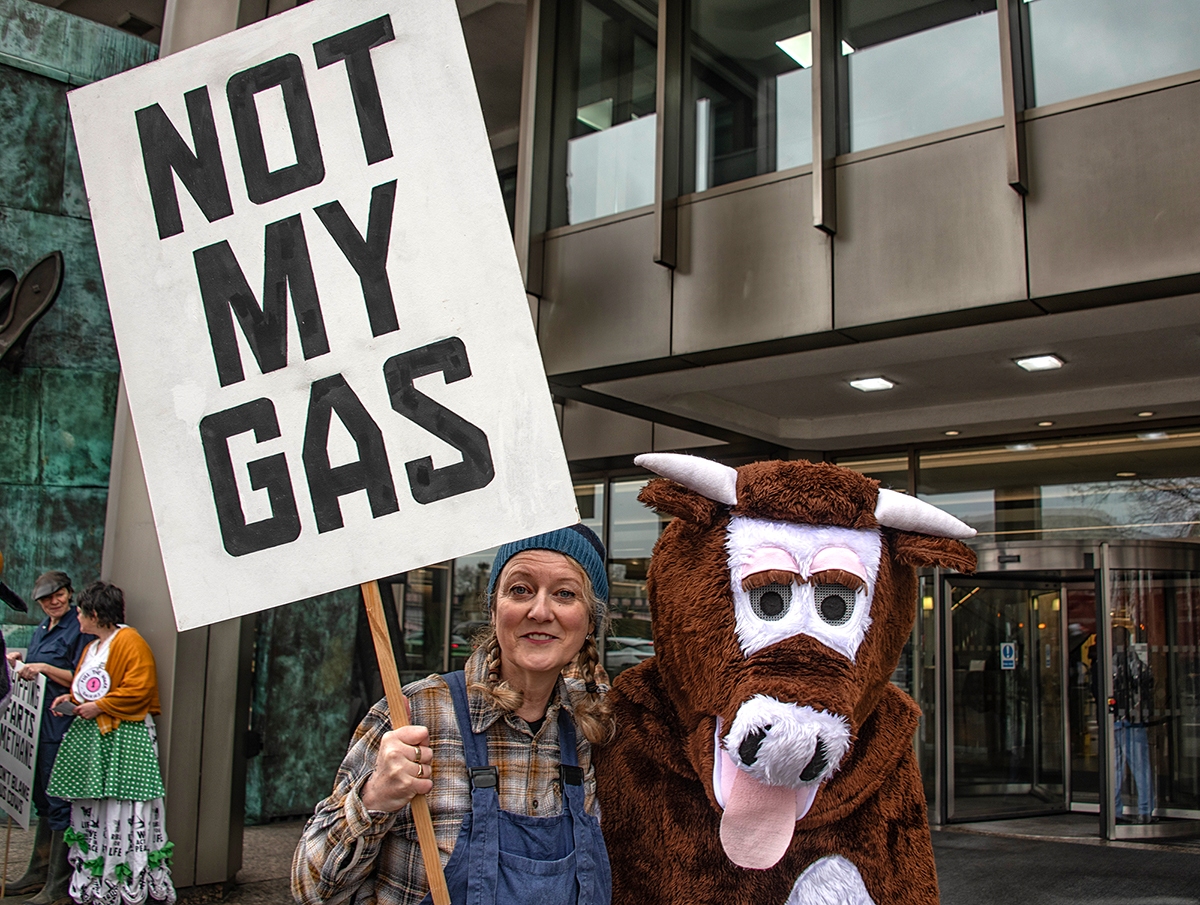
⬆️ ‘It’s not my gas’ claimed Gertrude’s herder, but Gertrude was obviously showing signs of being gaslit by the shipping industry. Photo by Guy Reece.
Gaslighting Tactics
Gaslighting is a form of psychological manipulation used to make you doubt your own perceptions and sanity, often by distorting facts or reality. LNG proponents are employing gaslighting tactics, like funding research and selectively citing studies that support their narrative while discrediting researchers highlighting LNG’s risks. They are also undermining dissenting community voices and opinion leaders by labelling them as “alarmists” or “obstructionists.”
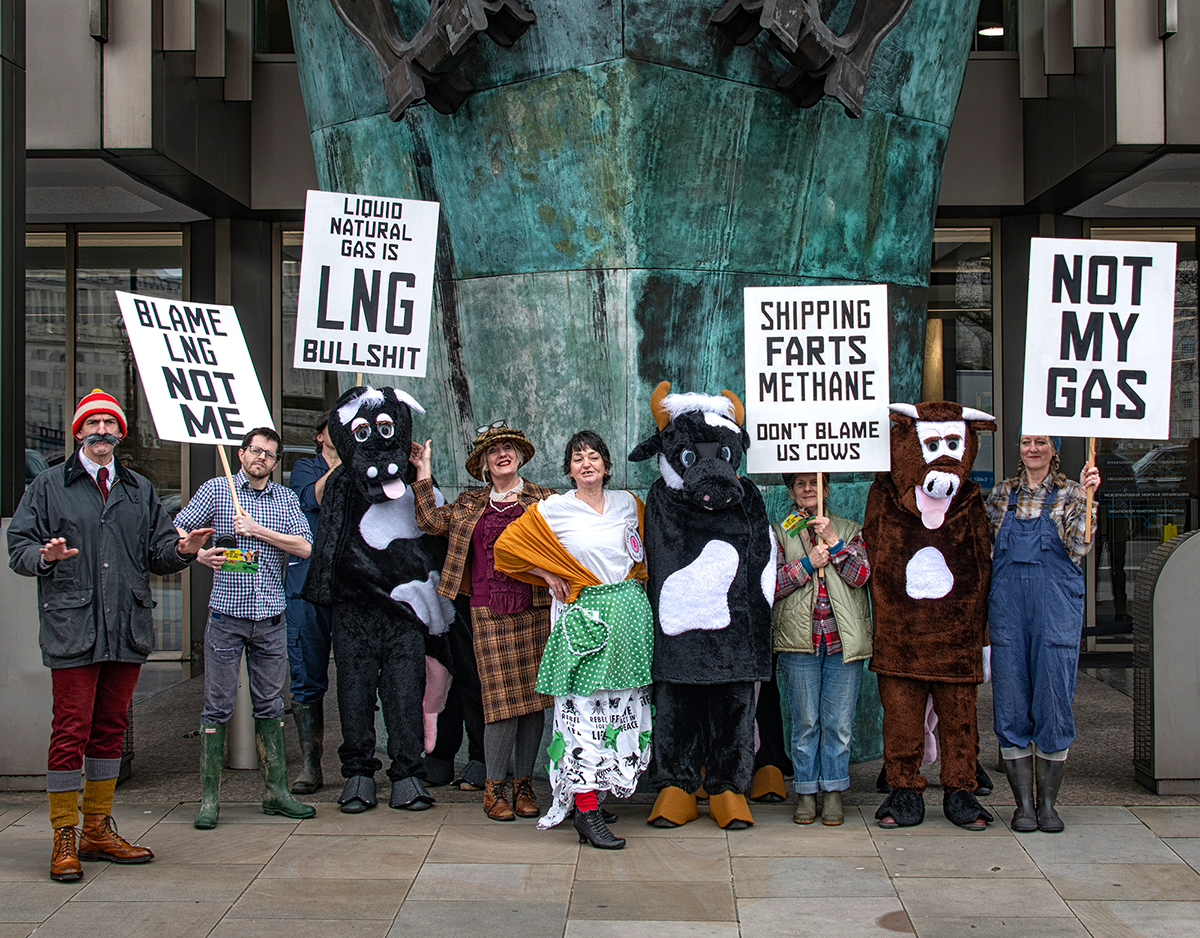
⬆️ ‘It’s behind you!’. The real pantomime is happening inside the IMO, it really doesn’t know the front end of a cow from its rear. Photo Guy Reece.
Liquid Natural Gas (LNG) – the facts
LNG is a fossil fuel that, when extracted, transported and burnt as a marine fuel, leaks methane into the atmosphere – a dangerous global-warming gas that is over 80-times more climate-warming in the short-term than carbon dioxide.
The UN’s Intergovernmental Panel on Climate Change (IPCC) identified rapid methane emission cuts as one of the top priorities in order to limit global warming to as close to 1.5°C as possible. The IPCC’s latest report focusing on climate mitigation makes clear that fossil gas in the form of LNG is not a solution for shipping’s decarbonisation.
Contrary to what climate science requires, shipping and port companies have been going full steam ahead in the wrong direction, investing heavily in fossil LNG, alleging that the fuel will reduce their environmental impacts and climate pollution. There are currently over 785 new cargo ships on order globally, with over 400 being built to run on fossil LNG.
Lng is a Disaster for the environment and all life on earth
Burning more fossil LNG onboard vessels is a disaster in the making for our planet. It would only increase methane emissions from ships, which already rose by 150% between 2012 and 2018, according to the UN International Maritime Organisation (IMO).
Methane emissions also decrease air quality. Additionally, increased demand for LNG—including in the marine sector—leads to adverse land-based impacts, such as polluted drinking water, reduction in crop production, and higher premature death rates.
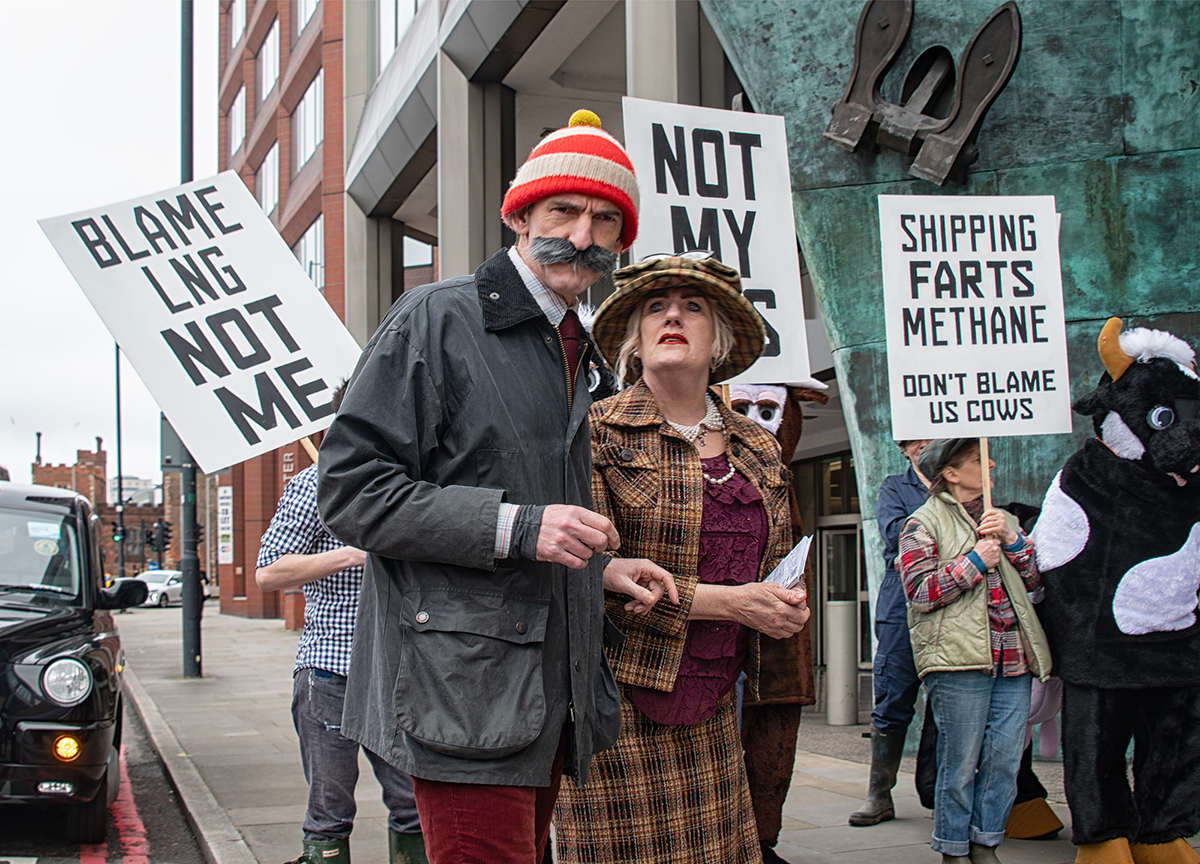
⬆️ We ‘Can’hardly’ wait to hear how the IMO is proposing to regulate LNG (or not). Photo by Guy Reece.
Current Status of LNG and Shipping
Between 2012 and 2018, methane emissions from LNG-fueled ships grew by 150 percent (Fourth IMO GHG Study 2020). Real-world methane emissions from shipping also indicate that the sector’s contribution to climate change is larger than previously estimated. Despite the negative climate and environmental impacts, the shipping industry is projected to witness further growth in LNG demand, with the anticipated addition of about 160 to 500 new LNG-fueled vessels annually until 2030.
We Need Strong Methane Regulations at the IMO
According to the IPCC (AR6), addressing the climate emergency and its devastating impacts on people requires urgently tackling methane emissions in the near term. LNG proponents are gaslighting policymakers about the real size of the climate and health impacts of LNG while jeopardising a liveable future on this planet.
The International Maritime Organization (IMO) is the United Nations body regulating international shipping. Currently, no specific international regulations exist for methane emissions from ships. However, several opportunities exist to comprehensively integrate methane into the IMO’s regulatory framework during the upcoming 81st Marine Environmental Protection Committee (MEPC81) meeting scheduled from March 18 to 22. If this doesn’t happen we propose a more drastic future for the IMO.
Call for action at the IMO
1/ The IMO’s Life Cycle Assessment (LCA) guidelines: to ensure accountability for the real size of the sector’s methane footprint, the default emission factor for methane slip must be at 8.5% instead of the IMO’s current 3.5%.
2/ GHG Fuel Standard: methane must be meaningfully included in the IMO GHG fuel standard being developed at the IMO as a medium-term solution.
OR
3/ Declare the IMO is unfit for purpose
A failure act to regulate LNG will prove the IMO is clearly unfit for purpose. It only acts on behalf of the shipping industry and rarely considers the environment. Add to this the IMO’s continued backing of the fossil fuel industry, by not taxing shipping fuel and allowing the dirty fossil fuel byproduct HFO to be burned at sea, plus its lack of regulation of hazardous petrochemical shipping, and the list of IMO misdeeds and wrong directions begins to get very long indeed. Given this ever expanding list isn’t it time the environmental remit of the IMO is governed by another, better, UN agency? Life is too important to be squandered by inept bureaucracy.
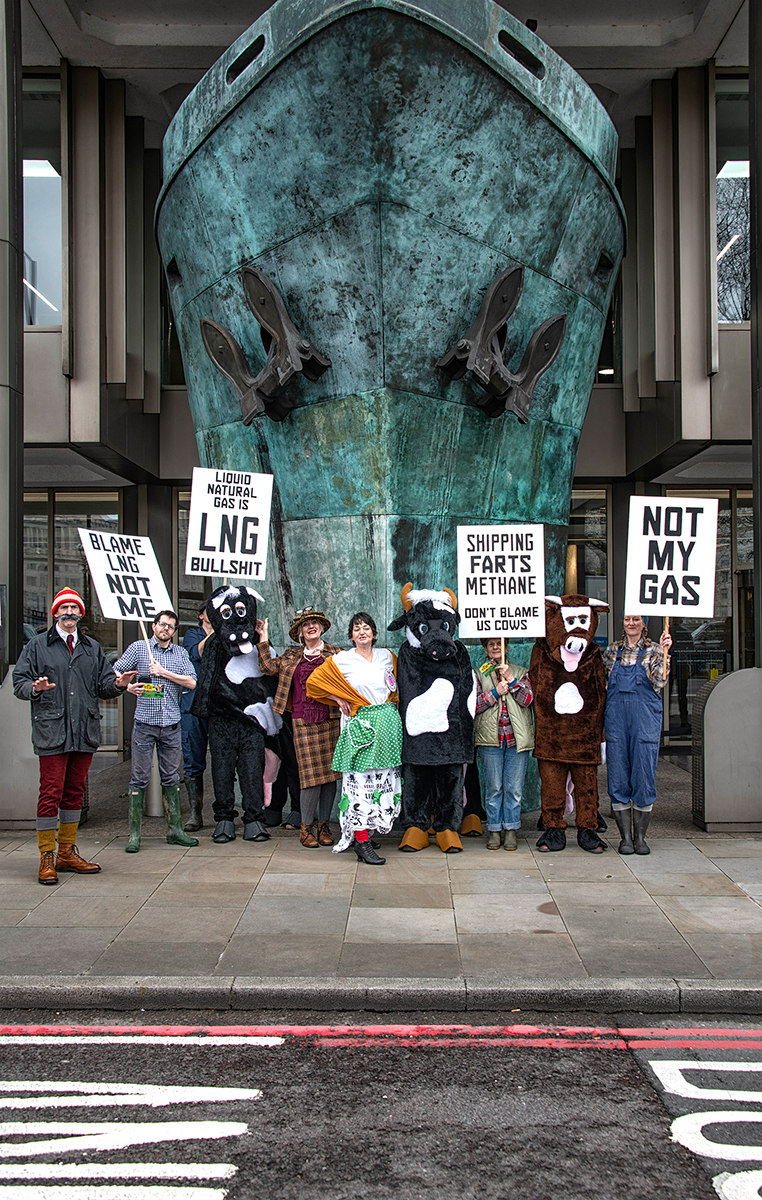
⬆️ When it comes to protecting the Ocean the IMO is just a big ship. Sort your Ship out IMO, start calling out rogue nations or ship out. Photo by Guy Reece.
Suzanne Stallard, from Ocean Rebellion says,
“The UN talks a great talk. The International Maritime Organisation, a UN body, is unfit for purpose. It’s corrupted by industry and uses its UN remit on behalf of the shipping industry. We’re living in an age of ecological breakdown, the UN must recognise this by reforming IMO governance. We ask the UN to call out its rogue subsidiaries, still more harmful to life on earth than the rogue states we hear so much about.”
The fate of the Ocean depends on us all.
We’ll let you know what we’re doing to help.
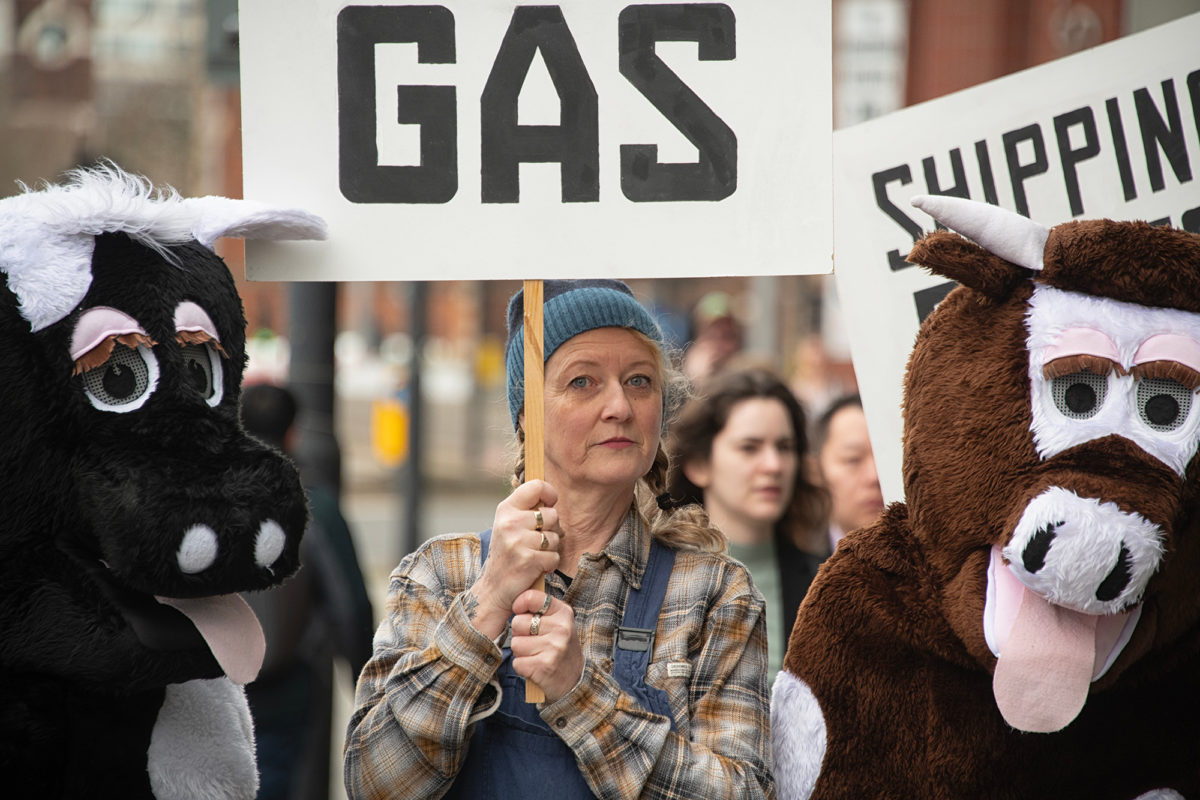
⬆️ Gas is fossil fuel, fossil fuel is gas. Wake up IMO it’s time to stop using fossil fuels. Photo Guy Reece.
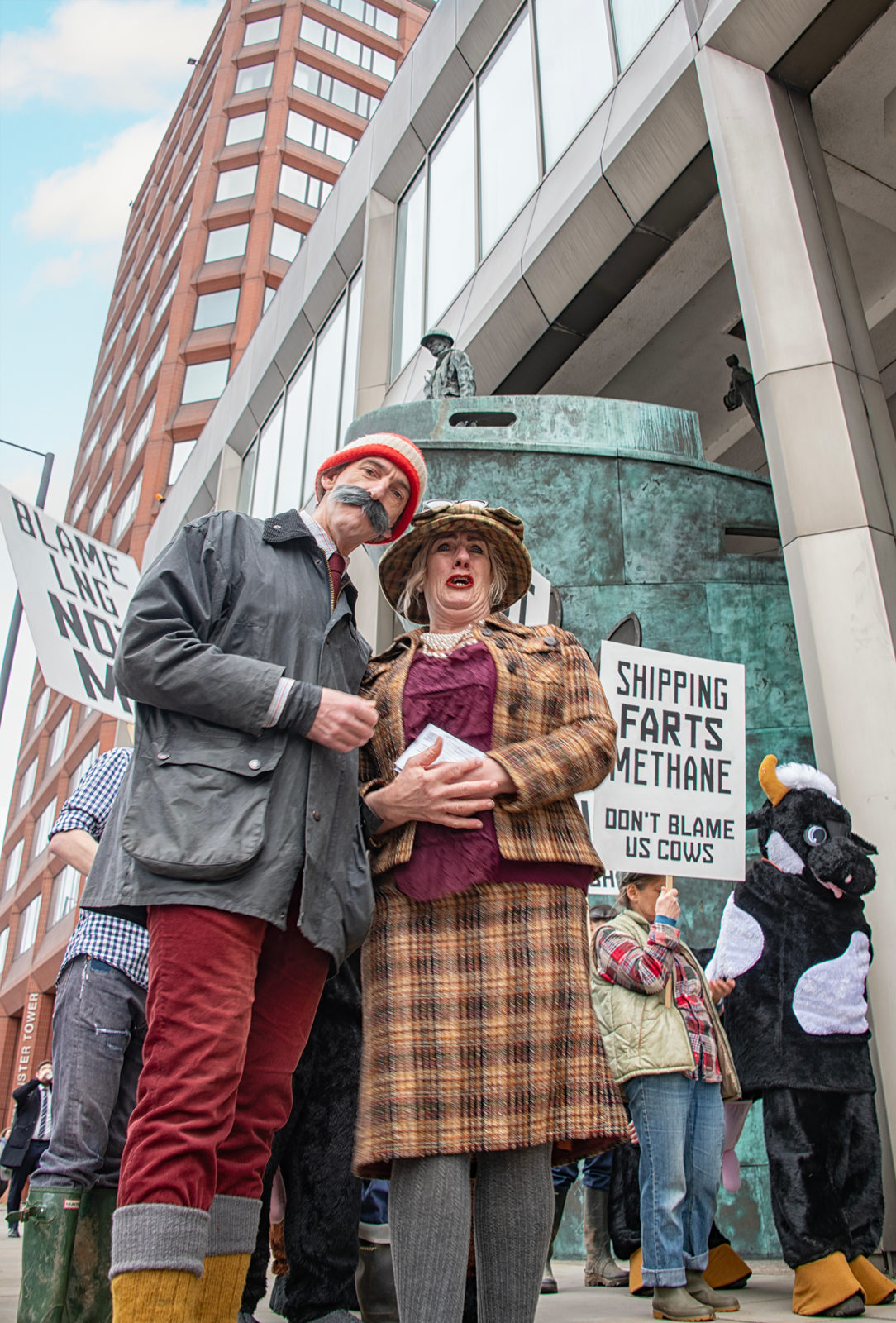
⬆️ “I say, how dare you fart in front of wife!” “I’m sorry, I didn’t realise it was her turn.” Photo Guy Reece.